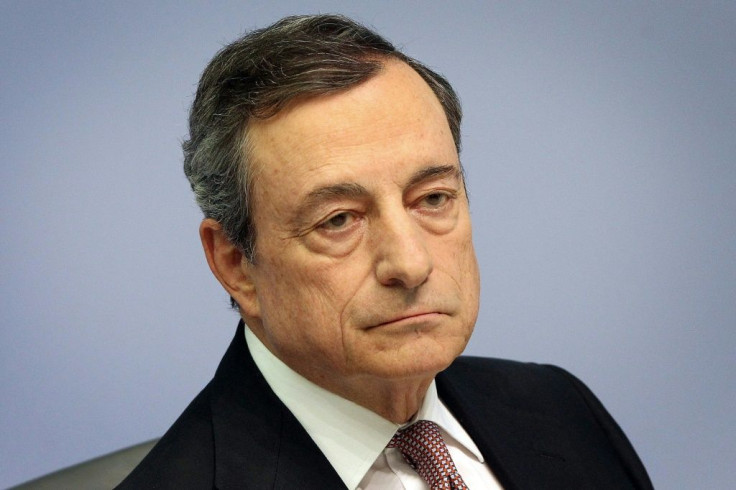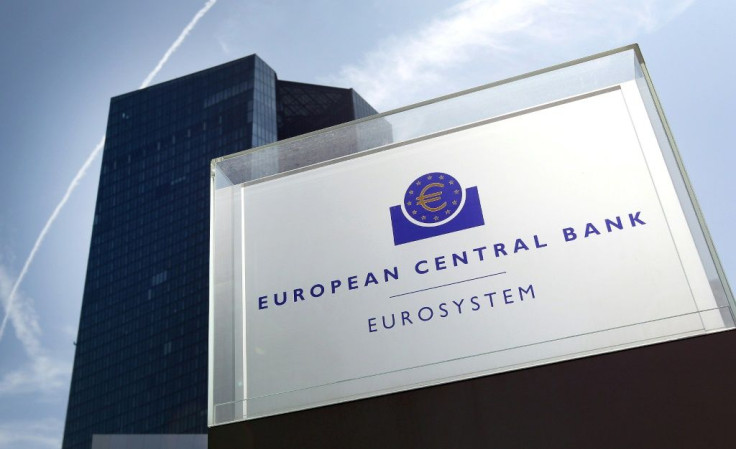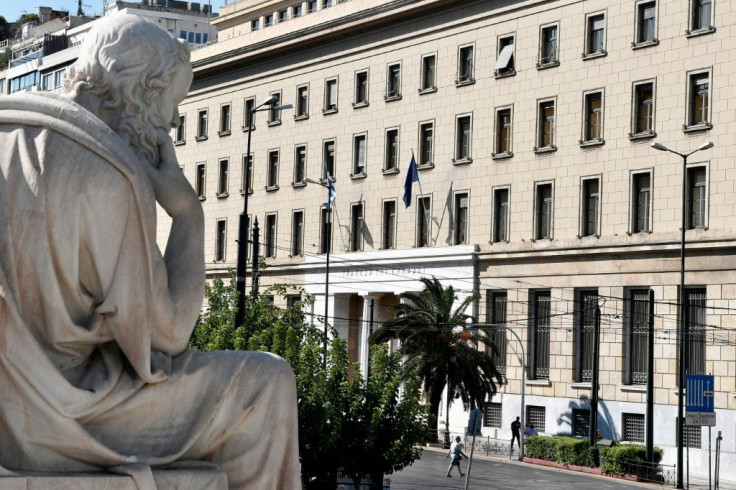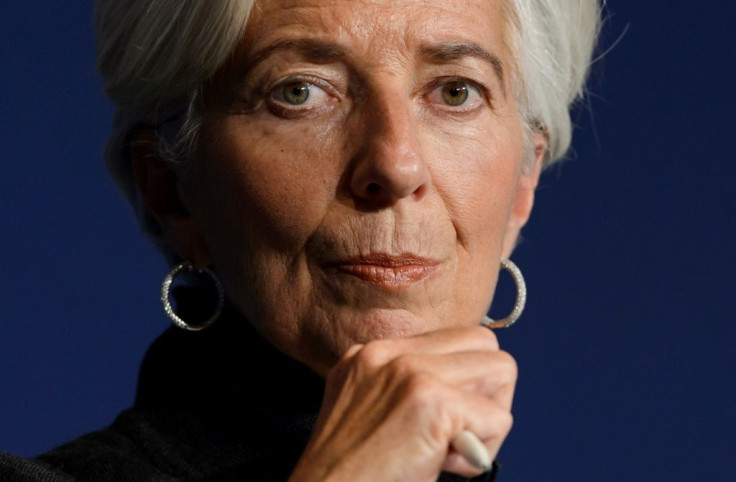Key Moments In Draghi's Eventful ECB Tenure

Mario Draghi hands over the keys of the European Central Bank to Christine Lagarde on October 31, leaving the former IMF chief a eurozone economy struggling to stay in gear.
Here are some of the key moments that made the Italian central banker's post-crisis tenure a transformative one for the Frankfurt institution:
Saving the euro
From the moment he arrived in 2011, Draghi was faced with a eurozone plunging into recession.
Countries with fiscal resources stretched to the limit by the financial crisis, like Italy and Greece, were struggling to find buyers for their debt.
Such challenges posed an existential risk to the single currency, then barely more than a decade old.
One bombastic intervention is seen as a turning point.
"Within our mandate, the ECB is ready to do whatever it takes to preserve the euro. And believe me, it will be enough," Draghi told a London conference in July 2012.

The ECB backed up his promise with a scheme that would allow it to buy unlimited amounts of government debt in exchange for tough reform programmes.
Never put into practice, the tool known as "outright monetary transactions" (OMT) helped calm financial markets.
But it also angered German eurosceptics, who failed in a legal challenge against the instrument.

Trillions to fight deflation
By 2014, the ECB faced a new risk: deflation, a harmful downward spiral of prices and activity.
Years after other central banks, Draghi steered the ECB into "quantitative easing", mass purchases of government and corporate debt, in early 2015.
By the time the programme was set to idle in December last year, the ECB had bought 2.6 trillion euros ($2.9 trillion) of bonds, visibly improving employment and growth rates.
But despite the years of stimulus, inflation remained short of the central bank target of just below two percent.

Greek crisis
Under Draghi, the ECB was closely involved in keeping Greece in the single currency and avoiding a financial collapse.
Its "emergency liquidity assistance" (ELA) kept the country's banks flush during the worst moments.
The central bank also played a key role in negotiations over loans to Greece that helped stabilise the economy, in exchange for painful reforms.
'Almost Prussian' to 'Count Draghila'
Hard as it is to believe today, Draghi was a darling of German media when he arrived, seen as "almost Prussian".
When he took his seat in Frankfurt, tabloid-style daily Bild photoshopped a spiked helmet from the militaristic core state of the pre-WWI German Empire onto his head, seeing him as backing their vision of monetary policy.
Since then, he has become a whipping boy for conservative German opinion, many of whom believe his attempts to restore inflation with easy money favour spendthrift southern European states at the expense of the parsimonious North.
Former finance minister Wolfgang Schaeuble even accused Draghi of stoking the German far right.
Germans particularly resent the low or negative interest rates resorted to by the ECB, saying they are harming banks and savers.
After a fresh rate cut in September, Bild depicted Draghi as a vampiric "Count Draghila", accusing him of "sucking our accounts dry".
Recently, former senior central bankers from Germany, France, Austria and the Netherlands signed an open letter criticising ECB policy.
Slammed doors
On the ECB's governing council -- made up of the 19 national central bank governors and six board members -- divisions also reached a peak in September.
Dutch central bank chief Klaas Knot called that month's rate cut and relaunch of QE "disproportionate", while Bundesbank (German central bank) head Jens Weidmann said Draghi was "overshooting the mark".
German ECB board member Sabine Lautenschlaeger even resigned.
It will now be up to Lagarde to overcome the trench warfare and restore a collaborative atmosphere around the council table.
© Copyright AFP {{Year}}. All rights reserved.





















